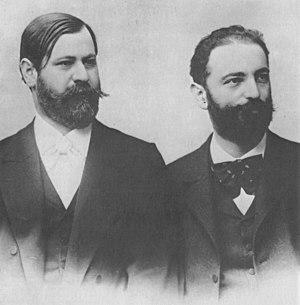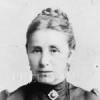Sigmund Freud skriver til sin venn og kollega Fliess i Berelin at han nå forstår hva det er som gjør at Sofokles' stykke Ødipus Rex har så gripende effekt: Stykket viser den universelle erfaringen til en gutt som elsker og begjærer sin mor og er sjalu på sin far, tror han. Han har nemlig gjennom sin intense selvanalyse som han gjennomgår om dagen, funnetfrem til kjærligheten til moren og sjalusi overfor faren i sitt eget tilfelle. Og han er i ferd med å bli overbevist om at dette er et allment fenomen i dne tidlige barndommen. Hvis han har rett i denne antakelsen, blir den gripende kraften i Kong Ødipus forståelig. For hver eneste tilskuer i salen har en gang vært en vordende Ødipus i fantasien, skriver han.
Denne tanken skal komme til å få enorme konskvenser for hans utvikling av teorien om ødipuskomplekset, og dermed for hele utviklingen av psykoanalysen. Freuds oppfatning av Ødipus' skjebne er imildertid ikke den samme som Sofokles'. Det dreier seg ikke om noen kraft utenfra, kraften fins inni hvert enkelt menneske. I underbevisstheten ønsker alle mennesker å trenge inn i sin egen mor. Men man gjør det ikke, av frykt for å bli kastrert av far, som er gjenstand for ens seksuelle og morderiske misunnelse. de som mestrer denne trekanten og løser gåten, er friske. De som ikke gjør det, er nevrotiske. Dette, på godt og vondt, er penisens varige psykiske kraft, forkynner Freud.
Her er utdrag fra brevet til Fliess (her i engelsk oversettelse - originalen er på tysk):
"Dear Wilhelm, My self-analysis is in fact the most essential thing I have at present and promises to become of the greatest value to me if it reaches its end. In the middle of it, it suddenly ceased for three days, during which I had the feeling of being tied up inside (which patients complain of so much), and I was really disconsolate until I found that these same three days (twenty-eight days ago) were the bearers of identical somatic phenomena.
Actually only two bad days with a remission in between. From this one should draw the conclusion that the female period is not conducive to work. Punctually on the fourth day, it started again.
Naturally, the pause also had another determinant: the resistance to something surprisingly new. Since then I have been once again intensely preoccupied [with it], mentally fresh, though afflicted with all sorts of minor disturbances that come from the content of the analysis.
My practice, uncannily, still leaves me a great deal of free time. The whole thing is all the more valuable for my purposes, since I have succeeded in finding a few real points of reference for the story.
I asked my mother whether she still remembered the nurse. "Of course," she said, "an elderly person, very clever, she was always carrying you off to some church; when you returned home you preached and told us all about God Almighty. During my confinement with Anna (two and a half years younger [cf. 03 Oct re Freud's age when seeing her nude]), it was discovered that she was a thief, and all the shiny new kreuzers and zehners and all the toys that had been given to you were found in her possesion. Your brother Philipp himself fetched the policeman; she then was given ten months in prison."
Now look at how this confirms the conclusions of my dream interpretation. It was easy for me to explain the only possible mistake. I wrote to you that she induced me to steal zehners and give them to her. In truth, the dream meant that she stole them herself. For the dream picture was a memory of my taking money from the mother of a doctor -- that is, wrongfully. The correct interpretation is: I = she, and the mother of the doctor equals my mother.
So far was I from knowing she was a thief that I made a wrong interpretation. I also inquired about the doctor we had had in Freiberg because one dream concentrated a good deal of resentment on him.
In the analysis of the dream figure behind which he was concealed, I also thought of a Professor von Kraus, my history teacher in high school. He did not seem to fit in at all, because my relationship with him was indifferent or even comfortable. My mother then told me that the doctor in my childhood had only one eye, and of all my teachers Professor Kraus was the only one with the same defect: The conclusive force of these coincidences might be weakened by the objection that on some occasion in my later childhood, I had heard that the nurse was a thief and then apparently had forgotten it until it finally emerged in the dream. I myself believe that that is so.
But I have another, entirely irrefutable and amusing proof. I said to myself that if the old woman disappeared from my life so suddenly, it must be possible to demonstrate the impression this made on me. Where is it then?
Thereupon a scene occurred to me which in the course of twenty-five years has occasionally emerged in my conscious memory without my understanding it. My mother was nowhere to be found; I was crying in despair. My brother Philipp (twenty years older than I) unlocked a wardrobe [Kasten) for me, knowing that my mother was not in it and that thereby he could not calm me down? Now I suddenly understand it. I had asked him to do it. When I missed my mother, I was afraid she had vanished from me, just as the old woman had a short time before. So I must have heard that the old woman had been locked up and therefore must have believed that my mother had been locked up too -- or rather, had been "boxed up" [eingekastelt] -- for my brother Philipp, who is now sixty-three years old, to this very day is still fond of using such puns.
The fact that I turned to him in particular proves that I was well aware of his share in the disappearance of the nurse.
Since then I have got much further, but have not yet reached any real point of rest. It is so difficult and would carry us so far afield to communicate what I have not yet finished that I hope you will excuse me from it and content yourself with the knowledge of those elements that are certain.
If the analysis fulfills what I expect of it, I shall work on it systematically and then put it before you. So far I have found nothing completely new, [just] all the complications to which I have become accustomed. It is by no means easy. Being totally honest with oneself is a good exercise.
A single idea of general value dawned on me. I have found, in my own case too, [the phenomenon of] being in love with my mother and jealous of my father, and I now consider it a universal event in early childhood, even if not so early as in children who have been made hysterical. (Similar to the invention of parentage [family romance] in paranoia -- heroes, founders of religion).
If this is so, we can understand the gripping power of Oedipus Rex, in spite of all the objections that reason raises against the presupposition of fate; and we can understand why the later "drama of fate" was bound to fail so miserably. Our feelings rise against any arbitrary individual compulsion, such as is presupposed in Die Ahnfrau and the like; but the Greek legend seizes upon a compulsion which everyone recognizes because he senses its existence within himself. Everyone in the audience was once a budding Oedipus in fantasy and each recoils in horror from the dream fulfillment here transplanted into reality, with the full quantity of repression which separates his infantile state from his present one. Fleetingly the thought passed through my head that the same thing might be at the bottom of Hamlet as well.
I am not thinking of Shakespeare's conscious intention, but believe, rather, that a real event stimulated the poet to his representation, in that his unconscious understood the unconscious of his hero. How does Hamlet the hysteric justify his words, "Thus conscience does make cowards of us all"? How does he explain his irresolution in avenging his father by the murder of his uncle -- the same man who sends his courtiers to their death without a scruple and who is positively precipitate in murdering Laertes?
How better than through the torment he suffers from the obscure memory that he himself had contemplated the same deed against his father out of passion for his mother, and -- "use every man after his desert, and who should 'scape whipping?" His conscience is his unconscious sense of guilt. And is not his sexual alienation in his conversation with Ophelia typically hysterical? And his rejection of the instinct that seeks to beget children? And, finally, his transferral of the deed from his own father to Ophelia's? And does he not in the end, in the same marvelous way as my hysterical patients, bring down punishment on himself by suffering the same fate as his father of being poisoned by the same rival?
I have kept my interest focused so exclusively on the analysis that I have not yet even attempted to try out, instead of my hypothesis that in every instance repression starts from the feminine aspect and is directed against the male one, the opposite hypothesis proposed by you. I shall, however, tackle it sometime. Unfortunately I barely participate in your work and progress. In this one respect I am better of than you are. What I can tell you about mental frontiers [] of this world finds in you an understanding critic, and what you can tell me about its celestial frontiers [] evokes only unproductive amazement in me.
With cordial greetings to you, your dear wife, and my new nephew, Your Sigm."
Freud, S., et al. (1985). The complete letters of Sigmund Freud to Wilhelm Fliess : 1887-1904. Cambridge, Mass, Belknap Press of Harvard University Press.
http://ww3.haverford.edu/psychology/ddavis/ffliess.html
og
Friedman, D. M., & Jensen, K. O. (2004). Etter eget hode : penisens kulturhistorie. Oslo: Schibsted. s. 189.




